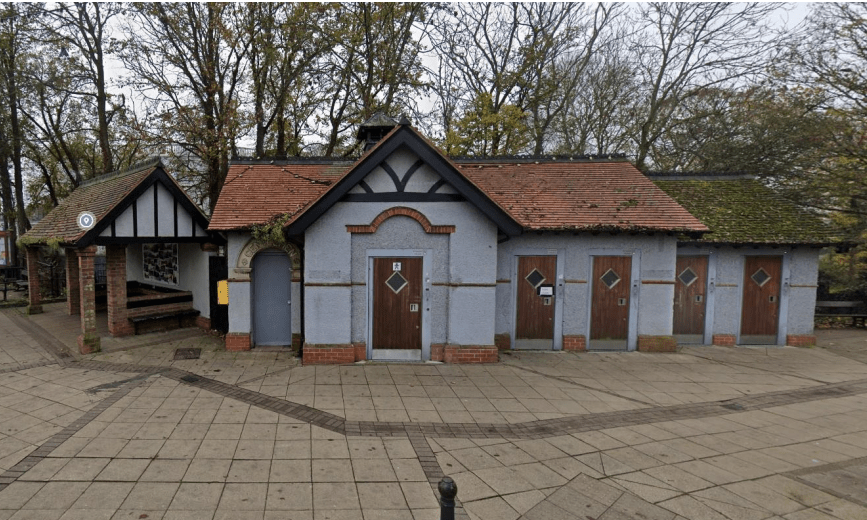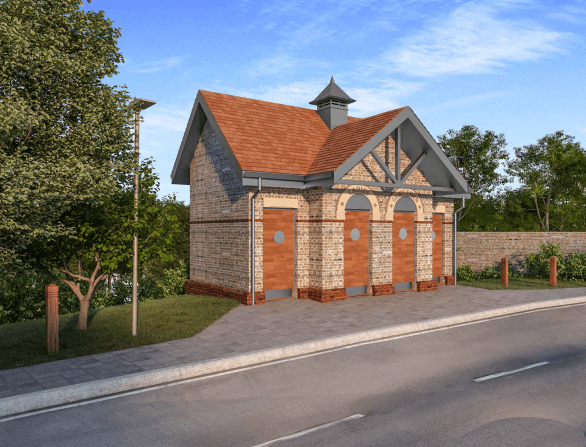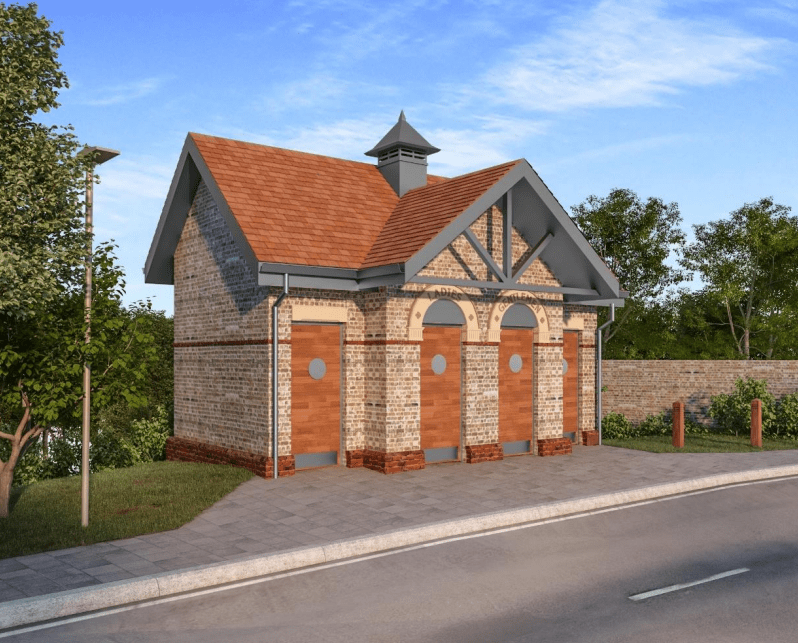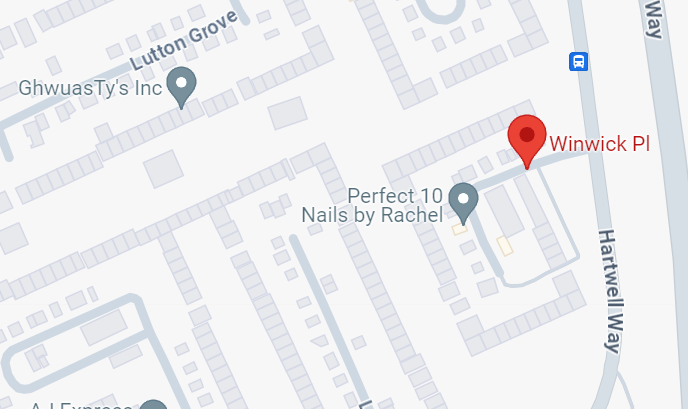Fenland District Council has decided to use part of a £240,000 Government grant to install changing place toilets at the George Campbell leisure centre and not to include them in a new town centre block it is planning as part of a wider regeneration scheme.
Only last year the council stated that “it is recognised that for many residents, particularly older people and those with restricted mobility, the provision of well-designed and maintained public toilets are essential.
“As part of the March Future High Streets Fund work, the existing toilet block will be demolished and a new, fit-for-purpose toilet facility will be provided at the western end of Grays Lane.
“This new facility will include two accessible toilets and a new state-of-the-art Changing Places toilet”.
Their statement added: “The Changing Places facility, which will be made possible thanks to funding from the Government’s Changing Places Fund, will provide a safe environment for people with severe disabilities who need specialised facilities when they are out and about.”

But anyone in need of them will now have to make their way to the George Campbell leisure centre.
Meanwhile demolition of the old town centre loos is complete and temporary toilets are in use pending construction of a new ‘ladies’ and ‘gents’ block.
Cllr Jan French, deputy leader of the council, said the planning application for the new toilet block in Grays Lane “is ongoing” and the council “is keeping as much as they can save” from the old block.
These include, she said, arches and reusing roof tiles. She said information on new facilities for disability and changing places “new state of the art facilities” will be in the leisure centre.
She reminded residents that district councils do not have a statutory duty to provide public loos. Fenland Council decided to retain one public loo in each Fenland town some 15 years ago but there was doubt at one time if the regeneration scheme would include any for March.
“The new toilets for March were fought for by me and Cllr Steve Count,” she said.

Fenland Council says it proposes to build “a new standalone toilet block, consisting of one disabled toilet, separate male and female toilets, and a plant room” in Grays Lane, March.
The council’s design statement, published last week as part of a planning application, says both the male and female toilets include baby change units, and all of the doors open outwards for ease of access.
“All rooms are of a generous size, allowing the public to use the facilities without restriction,” says the statement.

“The two central toilets, male and female, are larger as they form the gable protruding from the main building. This gives interest and character to the building externally and is a nod to the former toilet block that has now been demolished.
“The proposal originally included a changing place facility; however, this has now been installed in the leisure centre nearby.
“Externally, the building will be red brick to match the existing adjacent wall, with reclaimed tiles on the roof similar to those on the former existing toilet block located further down Grays Lane at the junction with Broad Street.
“There will be a brick plinth in a darker red brick, and a matching brick banding around the centre of building. Above the two doors that sit within the gable, there will be stone arched lintols inscribed with the words ‘Ladies’ and ‘Gentlemen’.
“This has been inspired by the existing ‘Gentlemen’ archway above the door of the former toilet block.

“This new toilet block will be situated along Grays Lane adjacent to the River Nene on a currently vacant site. The former toilet block has now been demolished as it was no longer fit for purpose.
“Some of the notable features on the former toilet block have been designed into the new building, such as the pitched gable wall, roof turret, and stone arched lintols above doorways inscribed with the words ‘Ladies’ and ‘Gentlemen’.”
Cambridgeshire police, commenting on the application, noted that the toilet block will continue to be managed by March Town Council.
It has asked for confirmation that the toilets will be locked in the evenings “to prevent unauthorised use of the facility.
“Consideration should be given to the use of a monitored CCTV system (if not already covered) on the outside or opposite the building, this will help to reduce criminal activity.”
Not all residents are happy that the changing places toilets will not be incorporated into the new loos.
“There are many wheelchair bound children and adults in March but the only changing places toilet is in Tesco at Hostmoor Avenue – most of the time there isn’t actually enough room for the wheelchair and a carer too,” she said.
Fenland is putting its second changing place toilets into the new pavilion at Wisbech Park.
A council spokesperson said the pavilion includes “improved public toilet facilities and a state-of-the-art accessible Changing Places toilet, which is designed to support the needs of all people with disabilities”.
Fenland Council says it began collaborating with engineers to design the new toilet facility for March town centre 13 month ago.
CHANGING PLACES FACT FILE
Changing Places offer more than standard accessible toilets, providing more space and necessary equipment. Standard disabled toilets are designed to meet the needs of disabled people who can use a toilet independently and cannot accommodate large wheelchairs and carers. It is estimated that more than 250,000 people need these facilities to be able to get out and about.
Changing Places toilets are larger than standard accessible toilets and provide equipment such as hoists, privacy screens, adult-sized changing benches and peninsular toilets, as well as space for carers.
Little Miracles of Peterborough credited for £120,000 specialist loo at IWM Duxford
Changing Places facilities are intended for people with complex disabilities who require hoisting from their wheelchair onto the toilet and providing support once on the toilet and those who are incontinent and who require hoisting from their wheelchair onto a height adjustable adult sized changing bench to have their continence pads changed.
They are also designed for those who are not wheelchair users but whose other complex needs are not met in current public toilet provision including disabled children and adults who have balance or health/size issues, or severe autism or challenging behaviours. They are also designed to enable family or professional carers to use the toilet with dignity whilst keeping the wheelchair user safe.
FENLAND DISTRICT COUNCIL Planning Application Documents
F/YR24/0115/FDC | Erect a single storey toilet block | Land South West Of 2 Broad Street March Cambridgeshire






















